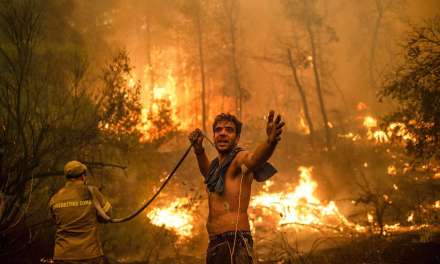The Kenyan government plans to build a 32-mile tarmac road through what is suggested as a UNESCO World Heritage Site. This area also serves as a key water source for the country.
The project aims to connect two counties, which could potentially boost local economies and improve accessibility for residents. Yet, the proposed road path would cut through one of the country’s main water sources, an ecological cornerstone that also serves as a vital wildlife habitat.

Image Souce: AP News
Scientists have voiced concerns regarding the potential harm this infrastructural project could inflict on the environment. The forest in question is a significant water source and a refuge for diverse wildlife species.
Environmental experts warn that the construction and subsequent traffic could lead to habitat destruction, disruption of animal migration patterns, and increased pollution levels in the water source.
In addition to the alarming ecological impacts, the project could compromise the status of the forest as a UNESCO World Heritage Site. Such a designation is given to natural or cultural sites considered to be of outstanding value to humanity, and any threat to their integrity could lead to their removal from the prestigious list.
While residents are optimistic that the project could bring financial gains and improve transportation, the scientific community urges a thorough assessment of the environmental costs. They are calling for a comprehensive environmental impact analysis before the project proceeds, emphasizing the need for sustainable development practices that balance economic progress with nature conservation.
The Kenyan leader’s push for the 32-mile tarmac road construction amidst these concerns underscores the recurring clash between development and environmental conservation. It highlights the pressing need for decision-makers to consider the long-term environmental consequences of their actions, beyond immediate economic benefits.
As the debate continues, it is clear that the outcome will significantly impact both Kenya’s environmental stewardship and its developmental trajectory. The decision will set a precedent for how the country handles similar situations in the future, potentially influencing its commitment to sustainable development goals.
Image Source: Twitter (@evakimathi)






